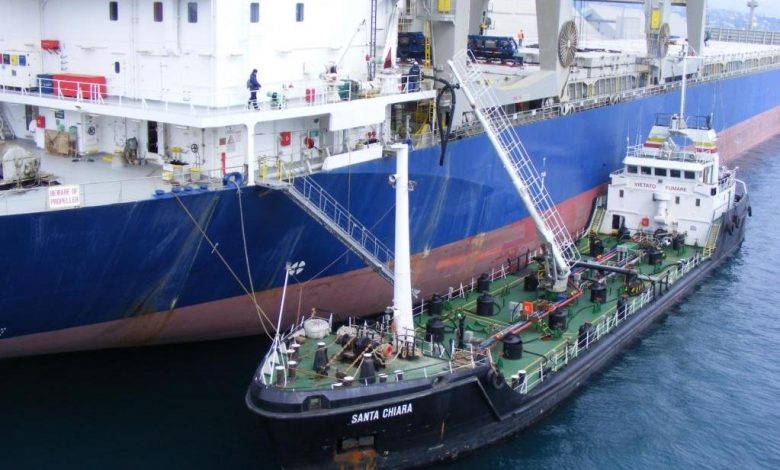Where sustainable biofuels fit in shipping’s bunker mix

Elizabeth Petit, Nicole Rencoret and Thordis Thordardottir from the Sustainable Shipping Initiative write exclusively for Splash today ahead of Climate Week kicking off on Monday.
Next week, Climate Week is descending on New Yorkers and the world. The voice of shipping will be heard loud and clear as the maritime community engages with climate and sustainability stakeholders participating in the annual gathering as well as the UN Climate Action Summit next Monday. And this year, the Sustainable Shipping Initiative (SSI) will convene an unprecedented debate on the role of sustainable biofuels in shipping’s decarbonisation.
There is an urgent need for the radical decarbonisation of shipping. We’re all aware that shipping accounts for 2-3% of global GHG emissions. Fulfilling the commitments laid out in the Paris Agreement means that we must see the rapid and full decarbonisation of all our global systems. There’s no way around it: the maritime industry has to do its part in limiting global warming to 1.5°C and transition towards zero-emission shipping.
Research commissioned by SSI last year revealed that zero-emission vessels must enter the world’s fleet by 2030, and that advanced biofuels represent one of the more economically feasible options for the shipping industry in that timeframe. Though biofuels may be considered “risky territory” by some, our preliminary research suggests there is potential for certain biofuels to help the shipping industry towards decarbonisation. But are these biofuels sustainable, are they available, and how do they compare alongside other alternative fuels and technologies required for our decarbonisation journey?
In early 2019 SSI launched its deep dive to explore the potential role of biofuels in the industry’s decarbonisation, aiming to better understand the issues surrounding the sustainability and availability of biofuels – alongside other options such as hydrogen, ammonia, LNG and electrification, among others. We’ve canvassed a diverse range of perspectives from maritime and non-maritime stakeholders that have helped us gain clarity, draw out insights and given us a better understanding of the various factors at play.
We’re excited to share what we’ve learned and see our stakeholder consultation process culminate in a high level event to be held in New York on Wednesday next week.
But all this is not just a talk-shop. It’s part of something bigger. Our ambition is to bring all of these perspectives, the expert insights and the knowledge together – both converging and diverging –into a piece that can give the maritime industry some concrete evidence and guide their approach and decisions around the energy transition towards zero-emission shipping.
This will come in the form of a report to be launched at the Intersessional Working Group on Reduction of GHG Emissions from Ships at the International Maritime Organization in London, in November 2019.
The issues are complex; there’s clearly no silver bullet that can get us to zero-emission shipping overnight. Biofuels represent one of a plethora of choices to be explored and may ultimately only end up being one part, and possibly only a transitional but vital part, of a wider solution. What is clear that we need clarity on the issues to move from the debate into industry action towards getting to zero-emission shipping by 2050.


Silver Bullets do exist http://www.upgyres.org/z-ships
Zero fossil fuel Zero emissions Zero fuel costs commercial ships.